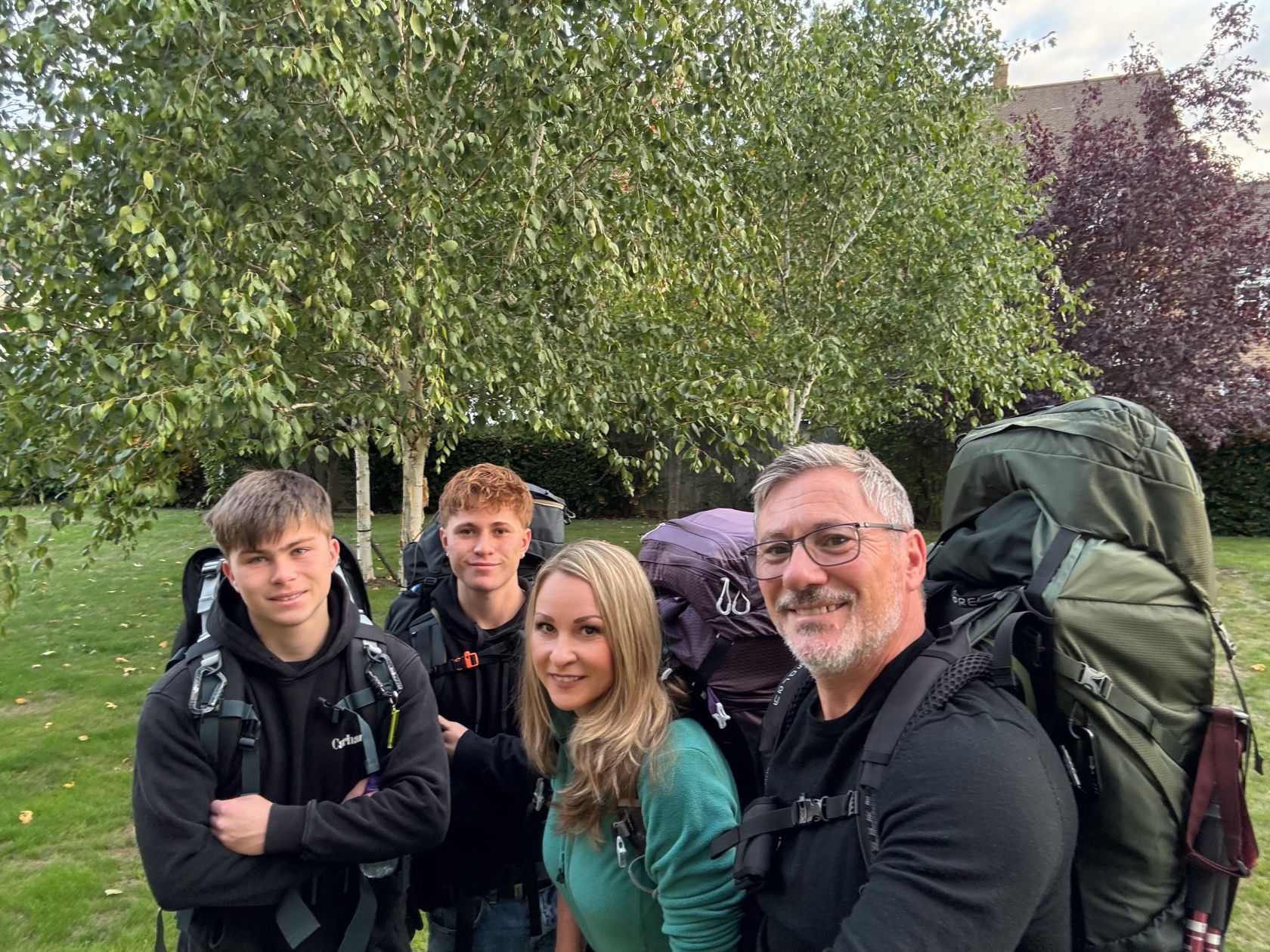The first lesson came before we even left the airport: travel is not a holiday. It is logistics, vigilance, and learning how to carry more weight than you thought possible, both in rucksacks and responsibility. Add to that, the daily soundtrack of bickering teenagers, hormonal mood swings, jet lag, tired parents, stress and anxiety, and suddenly the idea of a “dream trip” looks a lot more like a full-time masterclass in resilience.
We left Portugal, the safest country in Europe, where our sons grew up in a bubble of kindness, helpful strangers and low crime, not because we were running away from something, but because we wanted to run toward what school does not teach. Our teenagers have confidence, but confidence without caution is dangerous. They have knowledge, but knowledge without judgement is incomplete. This trip is our final big push as parents to help them develop the skills that will matter in the next economy.
Every generation has faced its own challenges. Ours is living through the transition from the Knowledge Economy, where storing and recalling information once guaranteed a comfortable career, into the Intelligence Economy, an AI-driven world where value comes from creativity, adaptability, emotional intelligence and the ability to work alongside automation.
University degrees no longer guarantee jobs. Graduates often leave with debt and outdated content, competing against those who pursued apprenticeships or alternative routes with real-world experience. What remains scarce, and therefore valuable, are the human skills: judgement, ethics, connection, and innovation. That is the curriculum we are betting on.
Peru is only the first stop. Ahead of us lie Bolivia, Chile and Argentina, then Asia: Thailand, Laos, Cambodia, Vietnam, China, Japan and Indonesia. Each country is not just a destination, but a classroom.
In South America, our boys will spend time volunteering, building schools and community housing in Peru and Buenos Aires. They will learn that being part of a community means showing up, giving time and effort, and working for something larger than themselves.
In Asia, they will work on farms, support teaching projects, and practice the art of exchange: labour for food and board, contribution for belonging. The point is not cheap travel. The point is teaching that giving back is part of being a citizen of the world. Volunteering puts them shoulder to shoulder with locals, not standing apart as tourists.

Travel delivers breathtaking landscapes and unforgettable moments, but it also demands discipline and awareness. Every relocation, often every two to four days, feels like packing up the house. Every new city demands organisational skills, planning, and the ability to adapt when things go wrong.
And in Asia, the lesson shifts again: slowing down. Meditation in Buddhist retreats, learning how to calm a racing mind and deal with fear, digital detox, and controlling breath when stress spikes. These are the skills that cannot be taught on a whiteboard.
We want our sons to practice an entrepreneurial mindset, spotting opportunities and learning from mistakes. Risk assessment, weighing choices and acting with caution in unfamiliar places. Respect for new cultures. Real creativity and thinking out of the box, solving problems with limited resources. Time, financial decisions and budget ownership, managing money, trade-offs, and independence. Sales and negotiation without being pushy, from taxi fares to tour guides. Storytelling with evidence, turning lived experience into credibility and voice. Networking across cultures, building bridges with people from different backgrounds. Emotional regulation under pressure, coping with stress, jet lag, arguments and setbacks. Using AI and simple tools, planning, translating, journaling, tracking and reflecting. Giving back, understanding that value is created not just by what you take, but by what you contribute.
These are not “nice extras”. They are survival skills in the real world and the future economy.
This journey is not just about them. It is also about us. It is the last big hurrah of hands-on parenting before our sons set out on their own paths. We know we cannot control every situation. We also know that without discomfort, there is no growth.
So, we embrace the bickering, the late-night stress, the volunteering shifts, the heavy bags and the moments of fear because those are the real lessons.
As I continue to write for The Portugal News, I will share stories of reinvention, entrepreneurship, education and the future of work, not from conference halls, but from markets, farms, volunteer sites and border crossings. The road will be messy, but the lessons will be real.
We are not turning our backs on Portugal. It remains our anchor, the place that gave our children safety, kindness, and a strong foundation. But for now, we step away so the world can become their teacher. And when we return, we’ll carry Portugal with us but we will be stronger, wiser, and even more connected to the global community.














